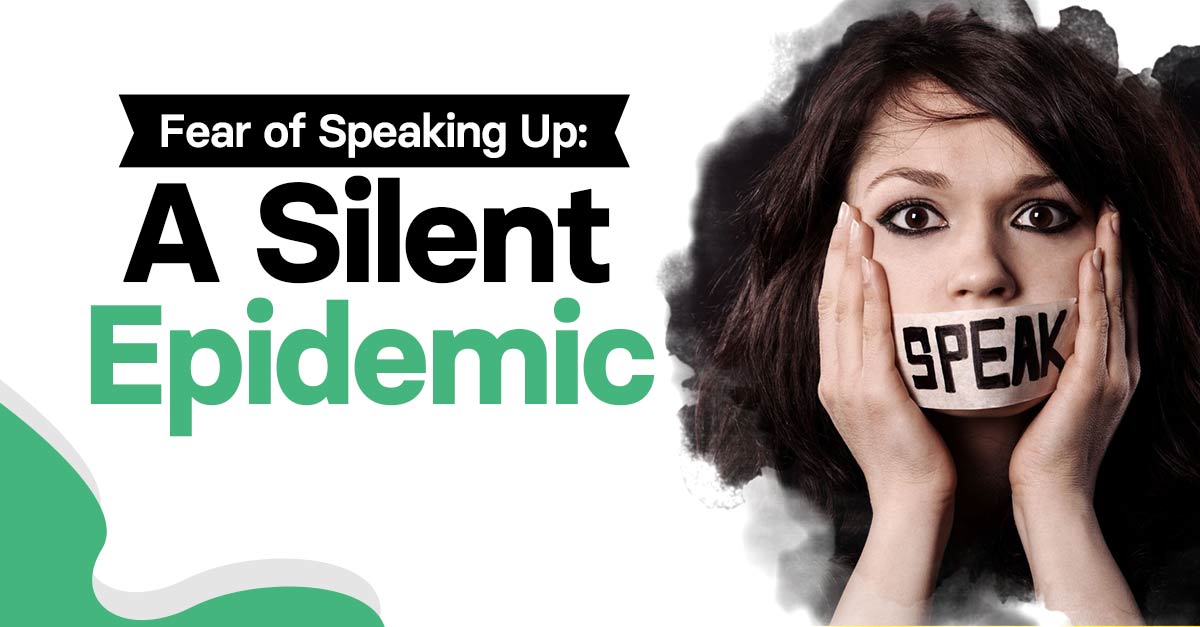Have you ever kept your idea quiet in a meeting?
You’ve wanted to say it out loud but you are ruminating; wondering if it’s a good idea. Worrying what people will think of it?
Thinking ‘What if it makes me sound stupid?’
And while you are ruminating…
…a colleague puts forward a similar idea, which is met with approval, and you kick yourself!
Why does this pattern occur?
It has much to do with fear.
The fear of speaking is more common that you might think and if you’ve been there, you are not on your own.
Nearly 70% of employees hesitate to speak up in meetings, often holding back valuable insights and ideas. (research conducted by Harvard Business Review.)
“Fear of speaking up” is more than just a reluctance to voice opinions or share ideas: it’s a psychological barrier that stifles our potential.
Actions like avoiding eye contact so you don’t get picked, refraining from asking questions, and nodding along silently in agreement are telltale signs of this widespread issue.
At its core, this fear is rooted in a natural human response to avoid rejection. It’s a safety mechanism if you like.
When we anticipate negative consequences or believe our input will be undervalued, we often choose to remain silent. This is a direct manifestation of what psychologists call “self-silencing.”
Self-silencing was first explored in the 1980s by Dr. Dana Crowley Jack, who identified it as a response to interpersonal stress and perceived power imbalances.
“Recent studies, however, highlight a broader context,” says Dr. Jack. “The workplace environment itself can significantly influence whether employees feel safe to speak up.
Factors such as organisational culture, leadership style, and previous experiences of being ignored or reprimanded all contribute to this fear.”
In fact, organisational culture plays a crucial role.
Environments that promote open communication and psychological safety encourage employees to share their thoughts without fear of negative repercussions.
Conversely, toxic workplaces, marked by punitive management and rigid hierarchies, exacerbate the fear of speaking up.
As economic uncertainties continue to loom, fostering an open and communicative workplace becomes increasingly vital. According to a report by McKinsey, companies that cultivate a culture of trust and openness see a 47% increase in employee productivity.
Leadership, once again, is key.
Research from Deloitte shows that 85% of the variance in employee willingness to speak up can be attributed to leadership behaviors.
“Effective leaders create a safe space for dialogue, actively seek out employee input, and value diverse perspectives,” says Dr. Karen Wilkerson, an expert in organisational psychology. “When leaders model openness and vulnerability, it sets a precedent for the entire organisation.”
However, poor leadership can have the opposite effect. It’s noted that 60% of employees cite their manager as the reason for their reluctance to voice their ideas. This underscores the need for leaders to undergo training in communication and conflict resolution to better support their teams.
So, as you start your week, if you are a leader, remember that your actions can either silence or amplify the voices within your team. By fostering a culture of openness and respect, you can unlock the full potential of your workforce.
If you are struggling with speaking up, find a Paseda360 coach in our directory and ask for a Stop Being Stuck session.







